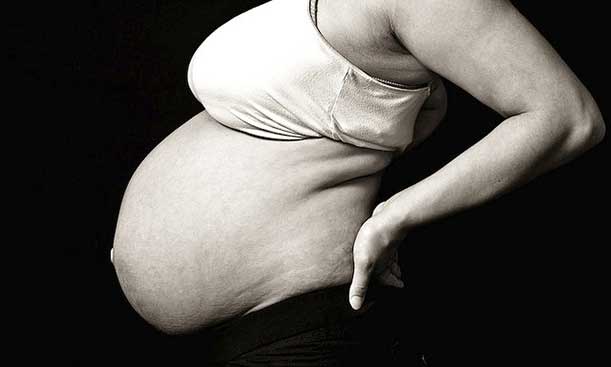Obesity during pregnancy

Obesity during pregnancy
Obesity during pregnancy may expose the fetus to iron deficiency
A new study found that infants of obese mothers were more susceptible to iron deficiency.
According to Health Day News, researchers at the Tufts University found that the excessive production of the iron regulatory hormone "hepcidin" can affect the transfer of iron from an obese woman to her fetus.
Scientists said that infants who suffer from iron deficiency are more susceptible to delay in the development of their mental and motor skills.
Sarbattama Sen, the researcher in charge of the study, said that "the data on the effect of the mother's low iron levels on the fetus happens in communities that suffer from malnutrition."
She added that this study is the first to show that obesity can hinder iron transfer from the mother to the fetus, and explained the mechanism.
Ordinarily, hepcidin rates remain low during pregnancy to improve the transfer of iron to the fetus, but obesity increases the production of this hormone.
Researchers monitored 15 pregnant women who suffered from obesity and 15 normal-weight pregnant women. They made them undergo a blood test during the second trimester of pregnancy, and used umbilical cord blood to assess the iron levels in the fetus.
It was found that obese women give birth to infants with low levels of iron.



Previous comments
No Previous Comment
Add Comment